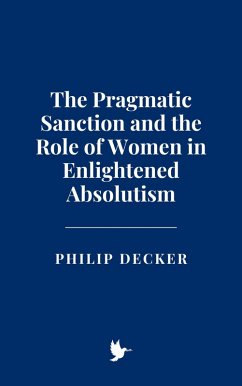The eighteenth century was a time of political upheaval and intellectual transformation. The age was marked by the rise of Enlightened Absolutism, a unique and paradoxical political system wherein monarchs sought to incorporate Enlightenment ideals of reason, progress, and reform while maintaining absolute power over their realms. The Pragmatic Sanction of 1713, a political decree issued by the Holy Roman Emperor Charles VI, is often considered one of the most significant documents of this period. It allowed Charles VI's daughter, Maria Theresa, to inherit the Habsburg lands and preserve the integrity of the dynasty, which would otherwise have been fractured due to the rules of dynastic succession that favored male heirs. The Pragmatic Sanction became not only a pivotal legal instrument but also an ideological battleground, as it represented the intersection of monarchical power, gender roles, and the evolving political landscape of Europe.
Dieser Download kann aus rechtlichen Gründen nur mit Rechnungsadresse in A, B, CY, CZ, D, DK, EW, E, FIN, F, GR, H, IRL, I, LT, L, LR, M, NL, PL, P, R, S, SLO, SK ausgeliefert werden.









